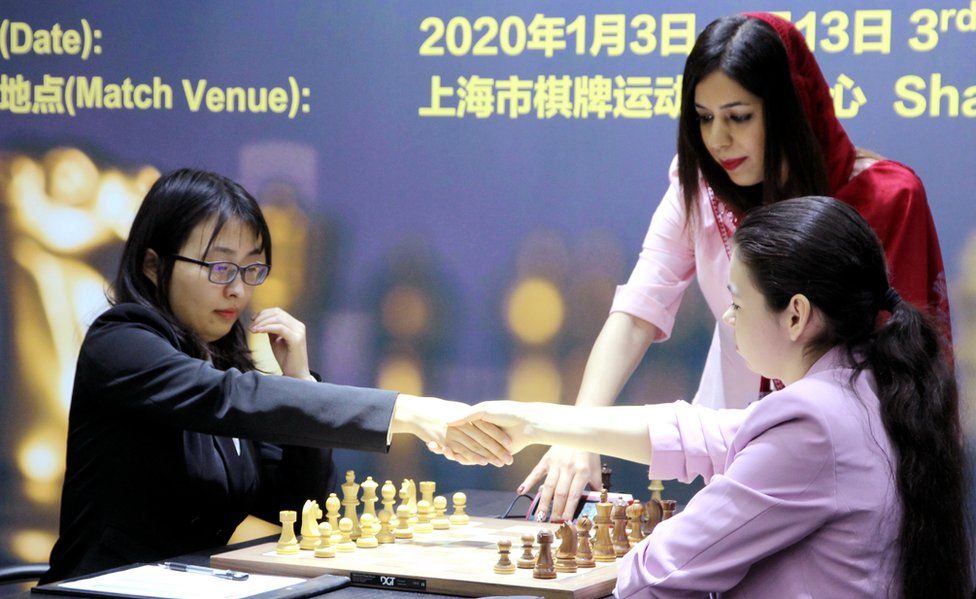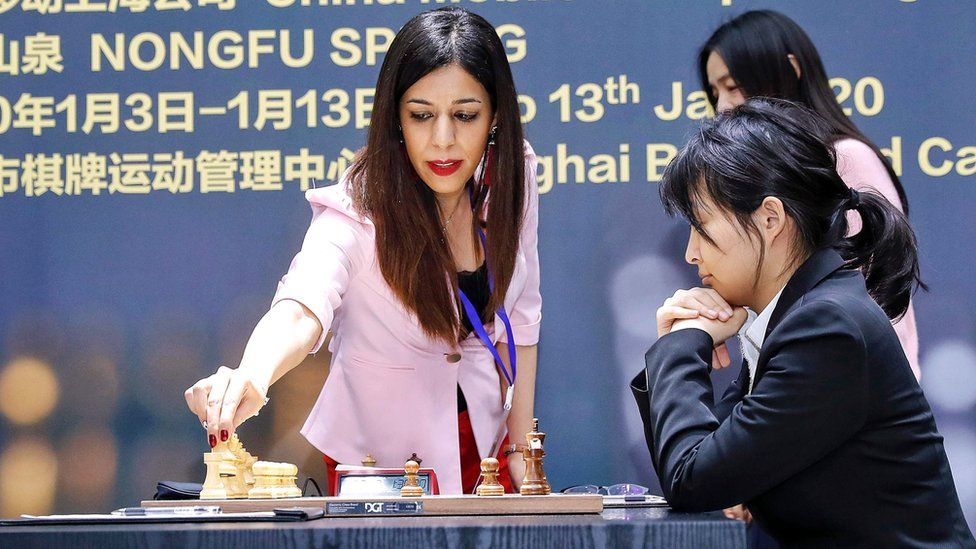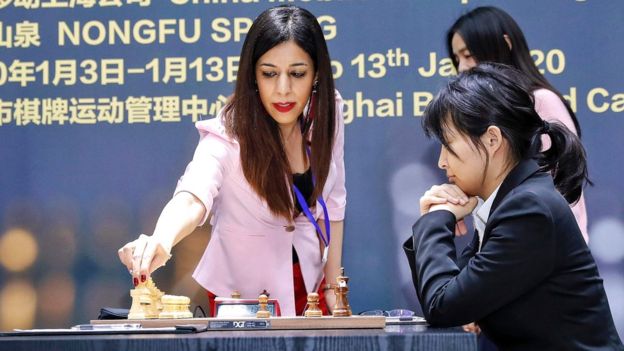For years now, the Islamic headscarf rule has brought so many controversies for female athletes. In all these, Female chess players are not left behind.
In 2016 American chess player Nazi Paikidze also drew international attention when she refused to attend the 2016 Women’s World Championship in Iran. After which she wrote on her Instagram page that it was “unacceptable” to host the tournament in a place “where women do not have basic fundamental rights”.
In 2018, Indian chess champion Soumya Swaminathan pulled out of an Asian tournament in Iran over the country’s compulsory headscarf rule. Then, the 29-year-old Woman Grandmaster said the rule was a violation of her personal rights. “Under the present circumstances, the only way for me to protect my rights is not to go to Iran,” she wrote in a Facebook post, which went viral.
For 32-year-old Iranian Shohreh Bayat, the 2020 Women’s World Chess Championship was meant to be a career highlight. It is her first time as the event’s chief arbiter – a senior role.
But that achievement has been clouded by controversy after the circulation of a photograph taken at the game in Shanghai that appears to show Ms. Bayat without a headscarf, as her country mandates.
She now feels unsafe to return to Iran, where women can be arrested for violating strict Islamic dress code.
“I turned on my mobile and saw that my picture was everywhere [in Iranian media]. They were claiming I was not wearing a headscarf and that I wanted to protest against the hijab,” Ms. Bayat told the BBC.
She says she was, in fact, covering her head as she always has at international tournaments, despite disagreeing with the rule.
‘Women should have the right to choose’
“It’s against my beliefs. People should have the right to choose the way they want to dress, it should not be forced,” she explained, speaking from Vladivostok in eastern Russia, where she is now refereeing the second leg of the World Championship.

“I was tolerating it because I live in Iran. I had no other choice.”
But this time Ms. Bayat has run into serious problems.
The photographs circulating online and being discussed by Iran’s state media show Ms. Bayat’s scarf apparently draped over her shoulders and not over her hair. In other pictures from the same day, her head is clearly – albeit loosely – covered.

Ms. Bayat says Iran’s chess federation instructed her to “write something” in response to the fuss, which she took to mean an apology and a defense of Iran’s dress code. This she refused.
So now she says it’s too risky to return to her family.
“There are many people in prison in Iran because of the headscarf. It’s a very serious issue. Maybe they’d want to make an example of me,” she explains, adding that she had “totally panicked” when she saw the reaction online.
The International Chess Federation (Fide), has not commented officially on the situation, as Ms Bayat has not broken any of its rules. But English grandmaster and now Fide Vice-President Nigel Short did tweet a photo praising the chief arbiter.
Ms Bayat says she asked Iran’s chess federation to write a letter guaranteeing her safety on her return, but they declined. She believes that they are under pressure, from higher up.
‘My achievements have been overlooked’
Ms. Bayat is angry that the argument over how she dresses has overshadowed her achievements in chess, where she’s one of only a few top-level women arbiters in the world – and the only one at all in Asia.
“I can’t think of any Iranian women who have worked at such a high-level tournament. But the only thing that matters to them is my hijab, not my qualification. That really bothers me,” Ms. Bayat says.
“I think people are under too much pressure, especially athletes,” Ms. Bayat says, adding: “This pressure to be something that you are not.”
She had felt that herself, even before the main controversy erupted: she had sent a photograph for Iran’s chess federation website, only to have it request another because the hijab on the image Ms Bayat had chosen was not “good enough”.
For now, Ms. Bayat is focusing on the job in hand: refereeing in Vladivostok as China’s Ju Wenjun defends her title from Russian challenger Alexandra Gorychkina.
She’s not yet sure of her own next move.
But as she cannot return to Iran, she has concluded that she has nothing more to lose and has removed her hijab altogether.
“This is a very hard decision. I feel so sad because I’m going to miss my family,” she confesses, though she said taking off her scarf meant she could “be myself”.
“If I had a choice to go back to Iran, of course, I would love to,” Ms. Bayat says. “But I don’t know what would happen to me.”
Source: BBC News
















Thats a serious dilemma for the woman.